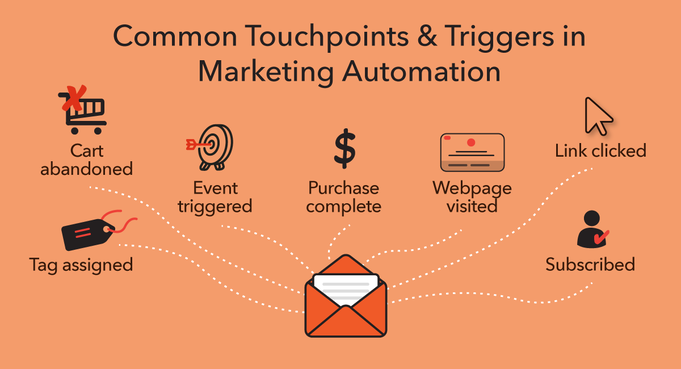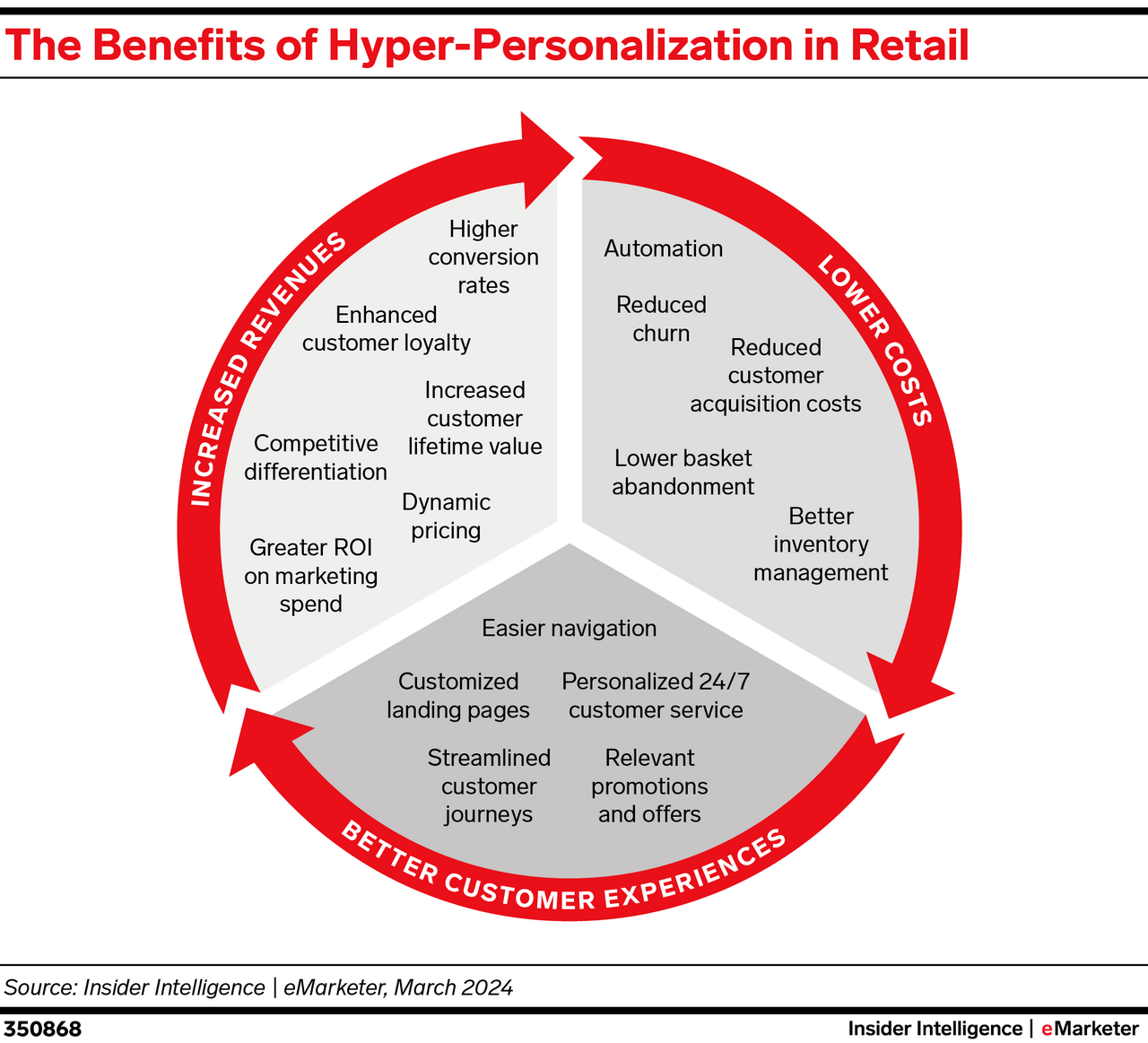What Are the Benefits of Integrating Lead Generation Technology?
Lead generation is the process of attracting potential customers and guiding them toward becoming loyal clients. Adobe reports that 96% of website visitors aren’t ready to buy from you, so you’ll need to generate as many leads as possible to grow your customer base.
However, manually collecting and managing leads takes time and effort. That’s where lead generation technology can help you. This innovative solution automates and streamlines the entire process so businesses can save time, optimize marketing efforts, and focus on high-quality prospects.
Companies can capture, track, and nurture leads with this technology, improving their chances of turning interest into action. This article explores the benefits of adopting lead generation technology, explaining how it boosts efficiency, increases lead quality, and enhances personalization.
Quick Takeaways
- Lead generation technology automates gathering customer data from multiple sources, saving time and reducing manual effort.
- It helps filter leads based on preset criteria, focusing marketing efforts on high-quality prospects and improving conversion rates.
- Tools like CRM software enable personalized outreach, increasing engagement and building stronger relationships with potential customers.
- Real-time analytics allow businesses to monitor lead behavior and campaign performance, optimizing marketing strategies.
- Automation boosts operational efficiency and allows businesses to scale lead-generation efforts as they grow.
Streamlined Lead Collection
One benefit of lead generation technology is its ability to automate customer data collection from multiple channels like websites, social media platforms, and email campaigns.
Instead of manually gathering and organizing potential customer information, businesses can use tools like online forms, chatbots, and landing pages to capture leads. For example, visitors to your website can fill out a form or engage with a chatbot, and your system will instantly record their information.

Alt Text: graphic showing some common touchpoints lead generation technology can identify
This automation reduces the need for manual data entry, saving time and minimizing the risk of human error. From there, businesses can streamline the entire lead collection process, allowing their marketing and sales teams to focus on nurturing relationships with potential customers rather than administrative tasks.
These tools make gathering leads from various sources easier and faster, boosting overall efficiency and improving the lead-capture process.
Improved Lead Quality and Targeting
Lead generation technology automates lead collection and helps filter and qualify them based on preset criteria. Filtering the results helps businesses focus on the most promising prospects.
You can set specific parameters like location, industry, or buying behavior and automatically identify leads that match their ideal customer profile. This process ensures that time and resources are spent on high-quality leads, increasing the likelihood of conversions.
Data analytics contributes to this technology because it allows businesses to analyze lead behavior and engagement. For instance, the technology can track how a lead interacts with your website or responds to email campaigns, helping identify which prospects are more likely to buy.
This refined targeting improves marketing efficiency, as businesses can tailor their messages to the right audience. In the end, lead generation technology boosts conversion rates by focusing efforts on qualified leads, leading to more successful outcomes and better use of resources.
Enhanced Personalization and Engagement
Businesses can personalize their interactions with potential leads using lead generation technology. This feature makes each communication more relevant and impactful.

Alt Text: graphic showing some of the benefits of personalization in marketing
For starters, businesses can track individual preferences, behaviors, and past interactions using tools like customer relationship management (CRM) software. You can create personalized email campaigns, tailored offers, and targeted ads with this technology so you can meet each lead’s unique interests and needs.
Personalization increases engagement by making leads feel valued and understood rather than bombarded with generic marketing messages. For example, a lead who shows interest in a specific product can receive targeted content or promotions that directly address their needs.
This level of customization builds stronger relationships with prospects, making them more likely to trust the brand and eventually convert into loyal customers.
Better Data Insights and Tracking
Your company can use lead generation technology to collect real-time data and performance metrics. This information helps you monitor your marketing campaigns.
Tools like Google Analytics and CRM platforms track metrics, such as where leads are coming from, how they interact with content, and their engagement levels. This data allows businesses to understand what’s working and what’s not in their lead-generation efforts.
Looking at clicks, time spent on pages, and email responses gives companies the data they need to optimize their strategies. From there, they can focus on high-performing channels and refine their messaging for better results.
This level of tracking improves the quality of leads and helps businesses adjust their marketing efforts in real-time, ensuring they target the right audience.
Overall, lead generation technology enhances visibility into campaign performance, making it easier to adjust tactics and improve conversion rates and return on investment.
Increased Efficiency and Scalability
Some lead generation tools automate time-consuming tasks like data collection, lead qualification, and follow-ups, improving operational efficiency. Instead of manually processing each lead, businesses can rely on automation to streamline the workflow, allowing their marketing and sales teams to focus on more strategic tasks.
This automation reduces errors, saves time, and ensures a faster response to potential customers, improving overall productivity.
In addition, lead generation technology is highly scalable, meaning businesses can expand their efforts as they grow.
This tech helps small businesses handle increasing numbers of leads without needing a larger team. In contrast, larger enterprises can use these tools to manage the thousands of leads they generate across various channels.
As businesses scale, they can customize and adjust their technology tools to handle more complex lead-generation strategies, making it easier to target a broader audience without overwhelming their teams. This flexibility makes lead generation technology valuable for companies of all sizes.
Cost-Effective Marketing
You can use these tools to reduce marketing costs by automating manual processes and optimizing ad spending. Instead of dedicating time and resources to manually collecting and sorting leads, businesses can automate these tasks with tools like CRM software, landing pages, and chatbots.
Lead generation technology also helps maximize return on investment (ROI) by focusing resources on high-quality leads. Using data analytics and automated targeting means businesses can allocate their marketing budget to where it will make the most difference.
For example, tools like Google Ads and Facebook Ads allow companies to target specific demographics based on behaviors and preferences, ensuring people who are more likely to buy can see the message.
The Power of Lead Generation
Integrating lead generation technology offers businesses a range of benefits, like better targeting, enhanced personalization, and scalability. Automating lead collection and qualification allows firms to focus on high-quality leads, increasing conversions.
Having dedicated sales professionals at your disposal can also improve your conversation rate, and Televerde provides this feature with our sales qualification and development services. Reach out to learn about the benefits of outsourcing your sales management pipeline.


